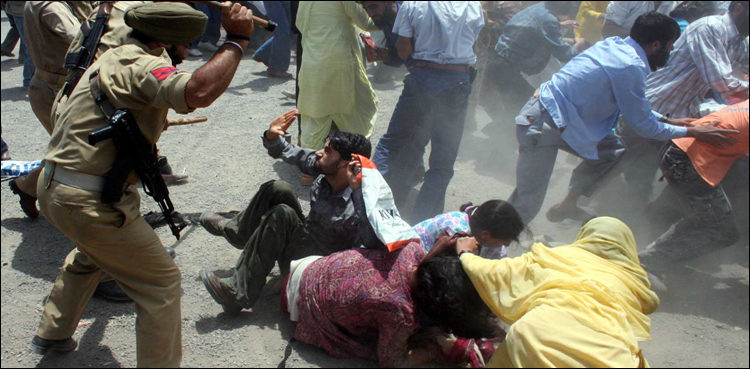News Desk
ISLAMABAD: The Kashmir issue seems to be on the back burner after the outbreak of COVID-19. Human rights defenders during a webinar titled “How to Avoid Kashmir Defocus Amid Pandemic Concerns.” suggested various steps to keep the issue alive to highlight the human rights violations in Indian occupied Kashmir, that has been under the longest lockdown in modern history, where roughly eight million people are unable to move freely or use the internet.
The webinar was organized by YFK-International Kashmir Lobby Group in Islamabad which was virtually attended by international human rights activists, journalists, and diplomats from Pakistan, the OIC, and from other major countries who have worked hard to achieve high visibility for Kashmir over the past few months.
Now there is some concern that this international interest in Kashmir might be affected. Kashmir was off the global radar for a long time but re-emerged as a topic of international interest after 2016. The United Nations has released two comprehensive landmark reports, in 2018 and 2019, on human rights violations mainly in Indian-occupied Kashmir, and several national parliaments – in United States, United Kingdom, and France – have held hearings on the situation in Kashmir in recent months. Global awareness of the humanitarian and political crisis inside Kashmir remains unprecedented thanks to an agile international media.
But all this attention on Kashmir risks being sidelined by the novel coronavirus outbreak. This is why five Kashmir activists and policy experts came together online via a video conferencing app to discuss ways to adapt to a post-COVID19 world while keeping the focus on the situation of Kashmiris who live under a draconian lockdown since August 5, 2019.
The webinar was addressed by the Participants included Altaf Hussain Wani, chairman, Kashmir Institute for International Relations; Dr. Waqas Ali Kausar, Head of Department of Governance and Public Policy at NUML University; Prof. Shagufta Ashraf, the University of AJK at Kotli, Advocate Pervez Shah from APHC, and Ahmed Quraishi, Director, YFK-International Kashmir Lobby Group.
One of the key points raised in the discussion came from Dr. Kausar who dismissed the notion that the current pandemic would strike Kashmir from the headlines. The conflict in Kashmir, he argued, has seen highs and lows over the past seven decades, and the occupation administration and military in that territory failed to suppress the freedom movement all these years. The Kashmiri freedom movement is resilient, Kausar said, and so the global focus on the pandemic will not hurt coverage of the situation.
Altaf Wani, who is a politician and academic from the Indian-occupied territory, endorsed this assessment and cited the example set by Pakistan’s permanent representative to United Nations in Geneva, Ambassador Khalil Hashmi, who, on April 9, 2020, during an informal video-link meeting of Human Rights Council with the UN High Commissioner for Human Rights, Michelle Bachelet, “highlighted that pre-Covid19 human rights abuses perpetrated by India against Kashmiris had exacerbated amidst this pandemic.” This and other developments, said Wani, confirmed that sidelining Kashmir in global news coverage despite the pandemic was not possible.
Advocate Pervez Shah, who comes from Indian-occupied Kashmir, briefed the participants and the online audience on the situation inside the disputed region with India’s lockdown and communication blackout.
YFK representative Ahmed Quraishi, who moderated the event, highlighted the need to generate debate among rights activists and policy experts on how to link the global discourse on the pandemic and lockdowns to Kashmir. This region continues to live under lockdown and millions are deprived of free use of the internet and communication apps. This has disrupted normal life, added to psychological suffering, and possibly exacerbated the spread of COVID-19 in the valley, Quraishi said.
Prof. Shagufta Ashraf said that the statement by the president of UN Security Council, Ambassador Jose Singer, to Indian newspaper The Hindu for India and Pakistan to cease hostilities in Kashmir, is proof that the global attention remains focused on Kashmir despite the pandemic. She proposed several ideas for Kashmiri activists and for the government of Pakistan to adopt, especially using the internet, smartphones and social media, to keep Kashmir in the news.
